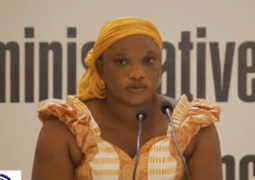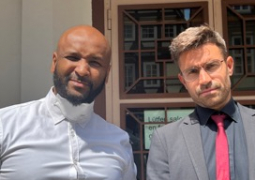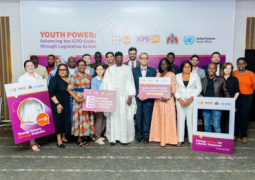Camara explained that the payment was intended for “visibility expenses” under the Banjul-Ostend City Project, but no supporting paperwork was provided to justify the withdrawal. “When I refused to sign the cheque, I was sidelined,” he testified. “I was not formally informed of my removal, but the committee continued to meet without me.”
He believes his resistance to the payment played a central role in his exclusion from the project. He noted that prior to this, he had insisted that all financial decisions under the project be vetted by the full steering committee a procedure he said was not being followed.
Camara went on to detail an incident involving councillors, where he alleged that they were invited to the office of the Mayor, Rohey Malick Lowe, and given an envelope containing D2,000 in cash.
This was reportedly done in exchange for their signatures on a document supporting his administrative leave from the council. According to Camara, only one councillor declined to participate in the process.
“These councillors were made to sign a sheet of A4 paper, which was later sent to the ministry to justify my removal,” he said.
Camara described the entire process as unethical and politically motivated, pointing to what he called a “climate of control and fear” within the council. He asserted that the Mayor, together with her political adviser, Macumba Sanneh, had effectively taken over the administrative and financial management of the council, leaving other officials with little or no authority.
He reiterated that critical decisions affecting council operations from staffing to financial disbursements were made solely by the Mayor and her inner circle, often without proper consultation or documentation.
On the issue of fuel allowances and expenditures, Camara stated that the Mayor received D15,000 per week for fuel, amounting to over D780,000 annually.
There was no fuel register in place to track consumption. He compared this with the monthly allocations of D4,000 to the CEO and D3,000 to the finance director. “It’s excessive and unregulated,” he said, noting that D6 million was budgeted for fuel in 2021, with D4 million specifically for the dumpsite.
Camara also revealed that the BCC lacked a formal loan policy, despite his efforts to draft one and request the establishment of a loan committee. Loan applications, he said, were handled informally by either himself or the CEO, often without proper vetting.
He concluded his testimony by describing his three year tenure at the BCC as turbulent and hostile. He said he was arrested multiple times, pressured to hand over revenue books, and ultimately pushed out for challenging irregular practices. “There’s a total absence of checks and controls,” Camara told the Commission. “All power rests with the Mayor and her circle. The administrative arm of the council is dead.”
The Commission has admitted various documents into evidence, including budget estimates, memos, and contracts provided by Camara. The inquiry continues to investigate the full extent of administrative failings and alleged misconduct within the Banjul City Council.




